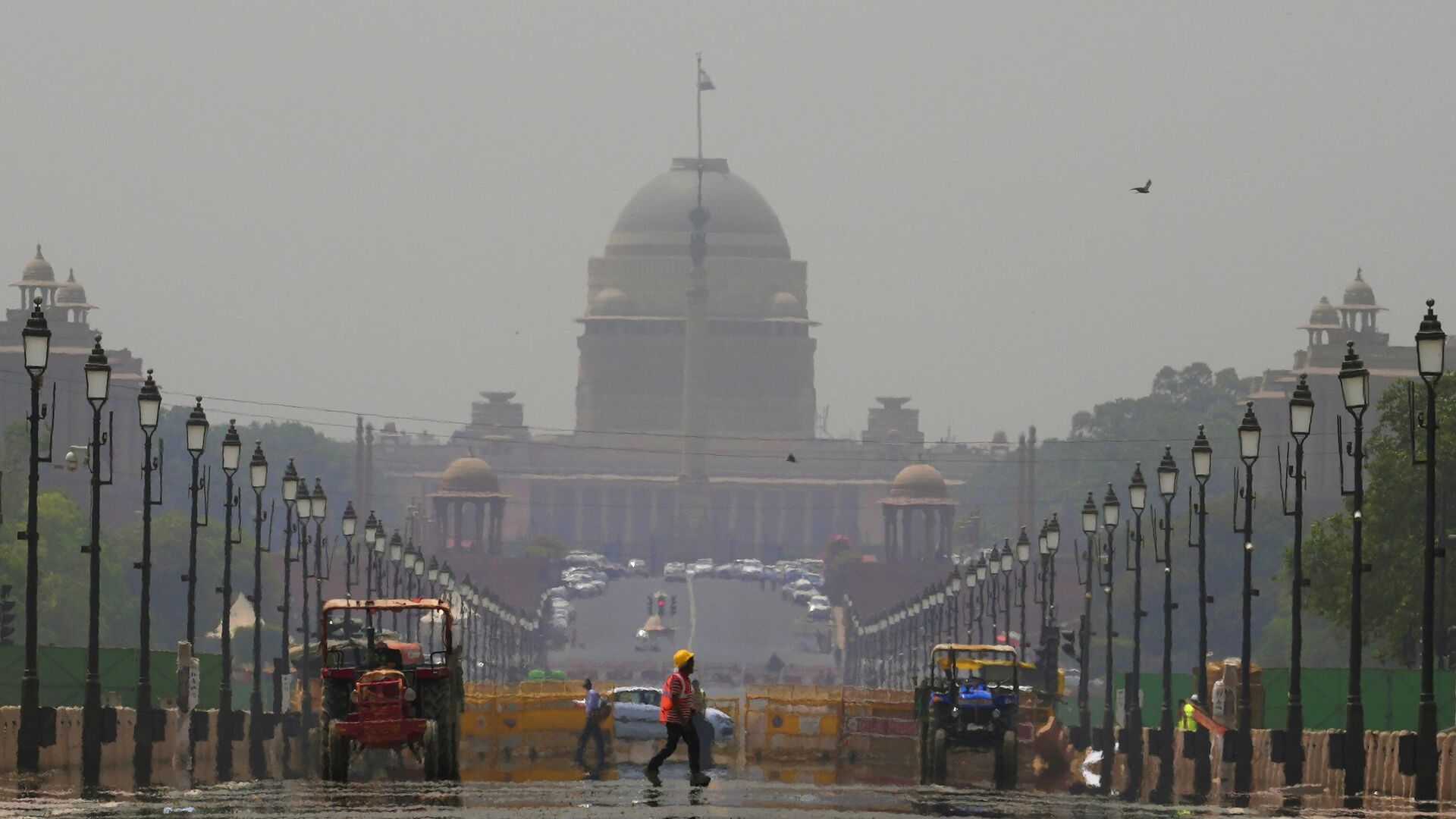https://sputniknews.in/20230629/study-links-extreme-heat-to-rising-domestic-violence-in-south-asia-2741105.html
Study Links Extreme Heat to Rising Domestic Violence in South Asia
Study Links Extreme Heat to Rising Domestic Violence in South Asia
Sputnik India
The study conducted and published by JAMA Psychiatry included 194,871 women aged between 15 to 49 years from three South Asian countries — India, Pakistan and Nepal from 2010 to 2018.
2023-06-29T20:38+0530
2023-06-29T20:38+0530
2023-06-29T20:38+0530
india
pakistan
nepal
heatwave
heatwave in india
climate change
https://cdn1.img.sputniknews.in/img/07e7/04/0e/1544828_0:119:3083:1853_1920x0_80_0_0_6817c65255726b3a81d08285298d5d85.jpg
As South Asian nations witness deadly heatwaves, a new study has claimed that rising temperatures are associated with a rise in domestic violence against women.The study, conducted and published by JAMA Psychiatry, included 194,871 women aged between 15 and 49 years from three South Asian countries — India, Pakistan, and Nepal from 2010 to 2018.The study found that a “one degree Celsius increase in average annual temperature was connected to a rise of more than 6.3 per cent in incidents of physical and sexual domestic violence in the three Asian countries.” The data is compared with temperature fluctuations across the same period. India, out of the three countries, reported the highest level of domestic violence.Michelle Bell, a professor of environmental health at Yale University and a co-author of the study, said there are “many potential pathways, both physiological and sociological, through which higher temperature could affect the risk of violence”.Climate change disproportionately impacts people with low incomes, with the study adding that the greatest impact on women is among lower-income and rural households.This indicates that the threat of violence could become more common as climate change makes extreme weather events more intense and frequent.In 2022, the UN Intergovernmental Panel on Climate Change identified a link between climate change and violence, citing the growing evidence that extreme weather events drive domestic violence, with global implications for public health and gender equality.Earlier this week, Jacobabad in Pakistan recorded a temperature of 49 degrees Celsius, the highest in 2023. Several Indian cities this year have witnessed temperatures of 45.9 degrees Celsius.Meanwhile, the Himalayan nation of Nepal's Nawalpur region on 9 June witnessed a temperature of 43.8 degrees Celsius, the country's highest recorded temperature.
https://sputniknews.in/20230426/meet-delhi-policewoman-who-rescued-more-than-100-girls-from-brothel-1691304.html
india
pakistan
nepal
Sputnik India
feedback.hindi@sputniknews.com
+74956456601
MIA „Rossiya Segodnya“
2023
Deexa Khanduri
https://cdn1.img.sputniknews.in/img/07e6/0c/13/138923_52:0:533:481_100x100_80_0_0_cadf23d341691fc65ff2b22fd1afe584.jpg
Deexa Khanduri
https://cdn1.img.sputniknews.in/img/07e6/0c/13/138923_52:0:533:481_100x100_80_0_0_cadf23d341691fc65ff2b22fd1afe584.jpg
News
en_IN
Sputnik India
feedback.hindi@sputniknews.com
+74956456601
MIA „Rossiya Segodnya“
Sputnik India
feedback.hindi@sputniknews.com
+74956456601
MIA „Rossiya Segodnya“
Deexa Khanduri
https://cdn1.img.sputniknews.in/img/07e6/0c/13/138923_52:0:533:481_100x100_80_0_0_cadf23d341691fc65ff2b22fd1afe584.jpg
increased temperature, extreme heat, extreme weather, crop failures, infrastructure damage, southeast nations, heatwaves, rising temperatures, domestic violence, jama psychiatry, south asian countries, annual temperature, domestic violence, michelle bell, yale university, low incomes, u.n. intergovernmental panel on climate change, public health, gender equality
increased temperature, extreme heat, extreme weather, crop failures, infrastructure damage, southeast nations, heatwaves, rising temperatures, domestic violence, jama psychiatry, south asian countries, annual temperature, domestic violence, michelle bell, yale university, low incomes, u.n. intergovernmental panel on climate change, public health, gender equality
Study Links Extreme Heat to Rising Domestic Violence in South Asia
Deexa Khanduri
Sputnik correspondent
Studies and experts have said that rising temperatures and extreme heat are leading to irregular weather patterns, crop failure, and infrastructure damage.
As
South Asian nations witness
deadly heatwaves, a new study has claimed that rising temperatures are associated with a
rise in domestic violence against women.
The study, conducted and published by JAMA Psychiatry, included 194,871 women aged between 15 and 49 years from three South Asian countries — India, Pakistan, and Nepal from 2010 to 2018.
The study found that a “one degree Celsius increase in average annual temperature was connected to a rise of more than 6.3 per cent in
incidents of physical and sexual domestic violence in the three Asian countries.” The data is compared with temperature fluctuations across the same period. India, out of the three countries, reported the highest level of domestic violence.
“With a one-degree increase in heat came an 8% rise in physical violence and 7.3% rise in sexual violence”, the report said.
Michelle Bell, a professor of environmental health at Yale University and a co-author of the study, said there are “many potential pathways, both physiological and sociological, through which higher temperature could affect the risk of violence”.
Climate change disproportionately impacts people with low incomes, with the study adding that the greatest impact on women is among lower-income and rural households.
This indicates that the threat of violence could become more common as climate change makes extreme weather events more intense and frequent.
In 2022, the
UN Intergovernmental Panel on Climate Change identified
a link between climate change and violence, citing the growing evidence that extreme weather events drive domestic violence, with global implications for public health and gender equality.
Earlier this week, Jacobabad in Pakistan recorded a temperature of 49 degrees Celsius, the highest in 2023. Several Indian cities this year have witnessed temperatures of 45.9 degrees Celsius.
Meanwhile, the Himalayan nation of Nepal's Nawalpur region on 9 June witnessed a temperature of 43.8 degrees Celsius, the country's highest recorded temperature.



